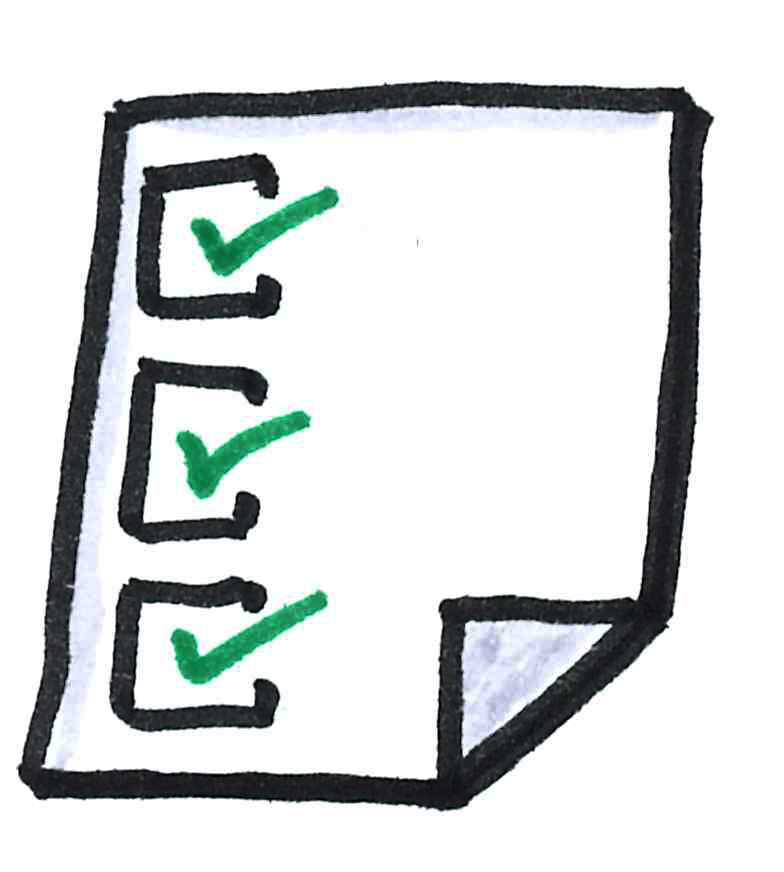In this blog post, I will be analyzing the audience of my text by answering a few questions. I will post my responses below.
 |
| Tacke, Oliver (2014) "Checklist" via Flickr Attribution 2.0 Generic License |
- Who am I writing for? What are the audience's values/beliefs/assumptions?
- I am writing for new students interested in my field of study (journalism), media ethics, or the recent failures or mistakes of media ethics. The audience always wants to be able to trust their source of information/author, therefore, it is safe to assume that the audience has the same values as me and the author who wrote the article.
- What position might they take on this issue? / How will I need to respond to this position?
- Some people might argue that questionable ethics in media is necessary in certain situations to get the whole truth from an event. Others might say that technology is not an underlying issue in recent failures of media ethics. I could respond to this/deflect this by further explaining how the author of the article I chose used certain rhetorical strategies to support her argument and influence the opinions of her audience.
- What will they want to know?
- The purpose of the project is to educate my audience on rhetorical analysis in my field; so, the audience will want to know clearly what my values, and the values of the author of the text, are and how they relate to the explanation/breakdown of rhetorical analysis. They will also want to see the evidence that supports my essay and the argument of my selected article.
- How might they react to my argument?
- I think that the majority of my audience will agree with the argument I am making. I am not really sure how to answer this question without knowing what it is specifically that I am going to argue (my thesis)...
- How am I trying to relate or connect with my audience?
- I am trying to relate to my audience by breaking down the process of rhetorical analysis through my article. The controversy being discussed in my article, which effects everyone in today's society, discusses today's issues that effect majority of my readers.
- Are there any specific words, ideas, or modes of presentation that will help me relate to them in this way?
- Yes, it will be useful to use the keywords and similar rhetorical strategies to the author of my article. These strategies will help me connect with my audience and get my opinion/point across successfully.
After reading Annelise and Rose's blog posts, I realized that I need to review the rubric again more thoroughly. Especially after reading Rose's post, I noticed that I did not reference the process of rhetorical analysis enough in my post. My post was more similar to Annelise's in that we both talked more about the values and purpose of the actual text of our articles and how we will present that to our audience through the structure of rhetorical analysis. After reading Rose's post, I am a little confused and concerned that I have not done the right thing. Now, time to re-read the Project 2 breakdown!!!
I was thinking a similar thing in that the audience would be one that would share similar values as the author. My idea on trying to connect to the audience was the same in that I will be presenting something that is relevant. I thought that the majority of my audience would agree with what I was saying as well. We seem to have thought very similarly on our audiences.
ReplyDeleteThat's really smart to use similar rhetorical strategies that the author of your chosen article uses. If the author was able to reach so many people that it got published online than it would definitely be a good strategy to use in general. I also agree that it is hard to know if the audience will agree with us because we haven't written our thesis statement yet.
ReplyDeleteIt's so hard to analyze what an imaginary audience will be expecting from you as an author but I think you did a fantastic job of explaining your thoughts here. It seems like you have a good grasp on the direction you want to take your Rhetorical Analysis Project. I agree that using key words that are similar if not the same as the author will be very useful in the Project. I think it will help create consistency and a stronger analysis.
ReplyDeleteI think your exploration of your prospective audience was quite thorough, especially in describing its makeup and the idea that they're already going to suspend their own ideas in order to focus on the analysis, rather than the source content's message.
ReplyDelete